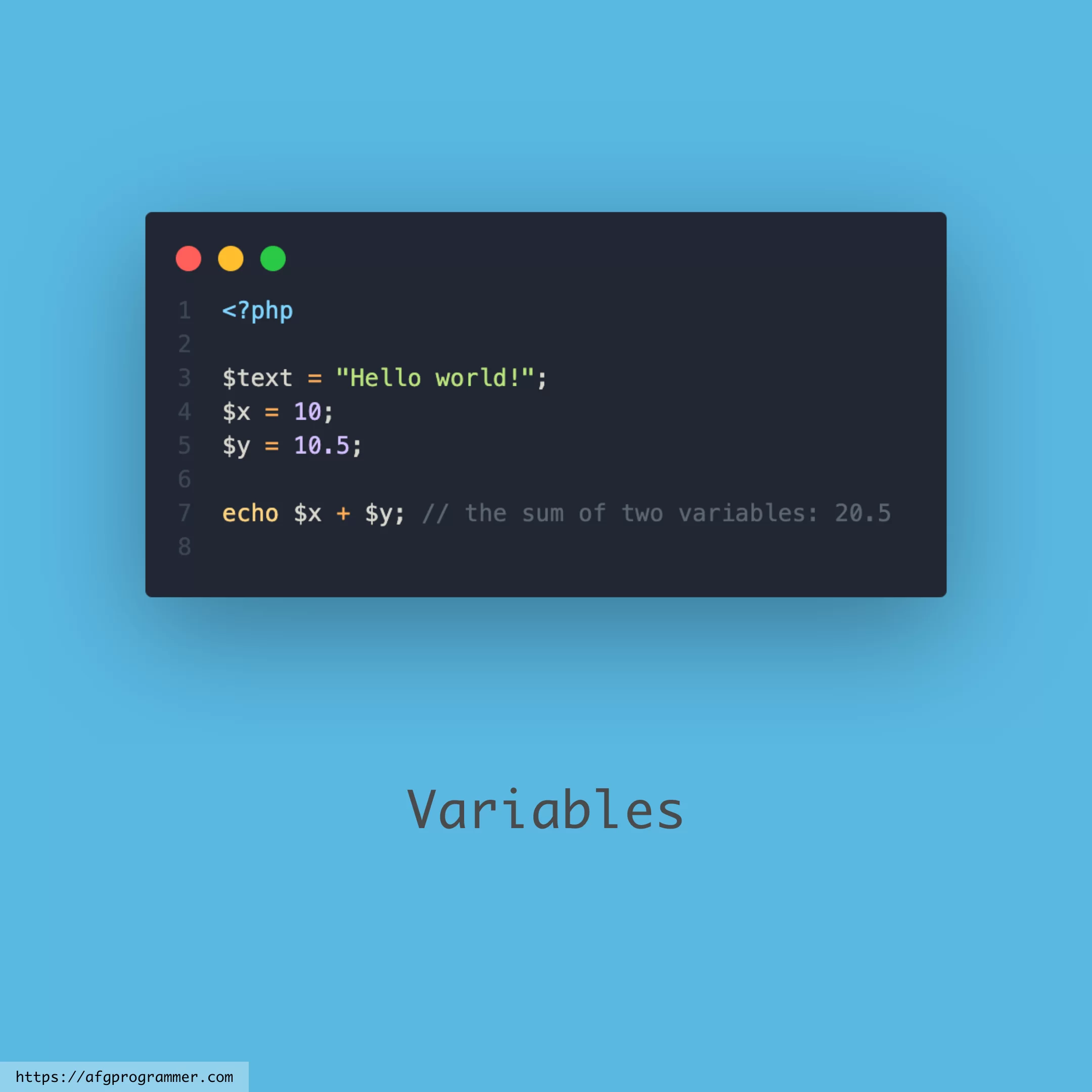Variables In PHP
 Posted By
Bajarangi soft
Posted By
Bajarangi soft ,
Posted On 03-10-2022
Variables are used to store data, like string of text, numbers, etc..
PHP Variables:
- In PHP we can define a valriabel using $ sign .
- After define variable name assingnment operator (=) define value of variable.
- We do not need to declare the data types of the variables. It automatically analyzes the values and makes conversions to its correct datatype.
- One time declared variable we can use multiple times in our code.
How to declare variable:
- PHP variable must start with $ .
- A variable name must start with letter(A to Z) or underscore(_).
- Variable name can contain only letter,underscore and numeric value.
- Keep in mind that a variable name does not start with special symbols or numbers.
- Variable name does not contain any space.
- PHP variables are case sensetive.
Syntax of declaration variable:
$variable_name = value;
Example:
<?php
// here we have some variables
$var = PHP;
$a = 7;
$b = 5;
echo "Welcome To $var";
echo $a + $b;
?>
Output:
//return output will look like this
Welcome To PHP
12
Example:
<?php
$name = "mike";
// here we were concated two strings
echo "Hii everyone my name is" .$name. "!";
?>
Output:
//output will look like this
Hii everyone my name is mike !
Scopes Of Variables:
PHP has three different variable scopes:
1.Global Variable:
Global variables refer to any variable that is define outside of the function.and it can be accessed from any part of the script.
Example:
<?php
$val = 10;
function add( ) {
global $val;
$val++;
printr "My age is $val ";
}
add();
?>
Output:
//output will look like this
My age is 11
2.Local variable:
- The local variable exists until the block of the function is under execution. After that, it will be destroyed automatically.
- The local variable declare inside the function.
Example:
<?php
function var( )
{
$value = 21;
echo "Mike is " .$value. "old now. ";
}
var();
?>
Output:
//output will look like this
Mike is 21 old now.
3. Static Variable:
You can declare a variable to be static simply by placing the keyword STATIC in front of the variable name.
Example:
<?php
function add() {
STATIC $a= 0;
$a++;
print $a;
print "<br />";
}
add();
add();
add();
?>
Output:
//output will look like this
1
2
3
